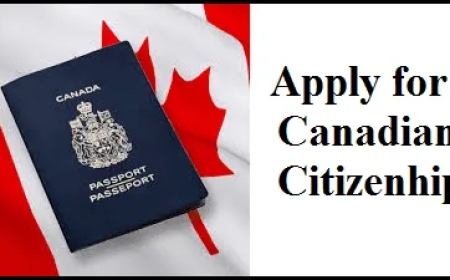How to Sponsor a Relative for Immigration: What You Need to Know
Family is at the heart of many immigration stories. For those already settled in a new country, helping loved ones join them is often a top priority. Fortunately, many immigration systems allow for immigration sponsorship for relatives, but the process involves specific eligibility criteria, documentation, financial commitments, and wait times. Whether you’re looking to sponsor a spouse, child, parent, or other eligible relative, understanding the steps involved can help make the journey smoother.

Family is at the heart of many immigration stories. For those already settled in a new country, helping loved ones join them is often a top priority. Fortunately, many immigration systems allow for immigration sponsorship for relatives, but the process involves specific eligibility criteria, documentation, financial commitments, and wait times. Whether you’re looking to sponsor a spouse, child, parent, or other eligible relative, understanding the steps involved can help make the journey smoother.
In this blog, we’ll walk you through the key aspects of sponsoring a relative for immigration, especially within the Canadian context, though many principles are applicable globally.
What Is Immigration Sponsorship for Relatives?
Immigration sponsorship for relatives is a process where a permanent resident or citizen of a country agrees to financially and legally support a family member’s immigration. This allows the relative to apply for permanent residency or a similar long-term status, depending on the country’s immigration laws.
The goal of these programs is to reunite families, support dependents, and strengthen community ties.
Who Can You Sponsor?
Not all relatives qualify for sponsorship. While rules may vary depending on the country, here’s a general overview based on Canadian immigration guidelines:
1. Spouse or Common-Law Partner
You can sponsor a legally married spouse, common-law partner (lived together for at least one year), or conjugal partner under the family class sponsorship program.
2. Dependent Children
Children under 22 years of age who are not married or in a common-law relationship can typically be sponsored.
3. Parents and Grandparents
Citizens and permanent residents may sponsor parents and grandparents, although these programs are often capped and may involve a lottery-style intake.
4. Other Relatives (Under Exceptional Circumstances)
In rare cases, you may be able to sponsor a sibling, niece, nephew, or grandchild—if they are orphaned, under 18, and not married or in a common-law relationship.
Eligibility Requirements for the Sponsor
To sponsor a relative for immigration, you must meet specific eligibility criteria. These often include:
-
Age: Must be at least 18 years old.
-
Residency Status: Must be a permanent resident or citizen.
-
Financial Ability: You need to prove you can financially support the sponsored relative without requiring government assistance.
-
No Serious Criminal Record: Sponsors must not have committed violent or immigration-related offenses.
-
Previous Sponsorship History: If you’ve previously sponsored someone who received government assistance, you may not be eligible to sponsor again.
In Canada, sponsors must also sign a sponsorship undertaking to provide financial support for the relative for a specific period (3–20 years depending on the relationship).
The Sponsorship Process: Step-by-Step
1. Check Your Eligibility
Review the sponsorship criteria in your country. Confirm your status, financial standing, and that your relative falls into an eligible category.
2. Gather Required Documents
These may include:
-
Proof of relationship (marriage certificates, birth certificates)
-
Proof of income or financial stability
-
Identity documents (passports, permanent resident cards)
-
Completed application forms
3. Submit Sponsorship Application
Most countries require the sponsor to submit an application first. Once approved, the sponsored relative can then apply for permanent residence.
In Canada, for example, you submit both the sponsorship and the permanent residence application together to IRCC (Immigration, Refugees and Citizenship Canada).
4. Pay the Application Fees
Fees may include a processing fee, biometrics fee, and right of permanent residence fee.
5. Wait for Processing
Processing times vary based on the relationship and the applicant’s home country. Spousal sponsorships may take 12–18 months, while parental sponsorships could take longer.
6. Attend Interviews or Medical Exams (if required)
Some relatives may be asked to attend an interview, provide biometrics, or undergo medical checks before final approval.
Financial Commitments and Obligations
When you agree to immigration sponsorship for relatives, you're committing to financially support them for a certain number of years. This means covering basic needs such as food, shelter, clothing, and health care not covered by public programs.
If the sponsored person receives government social assistance during this period, you may be required to repay those funds.
Common Reasons for Refusal
Sponsorship applications may be denied for several reasons, such as:
-
Ineligible sponsor or relative
-
Missing documents or incorrect information
-
Sponsor fails to meet financial requirements
-
Relationship appears non-genuine (in spousal cases)
-
Criminal or immigration violations
It’s crucial to prepare a complete, honest, and well-documented application to avoid delays or denials.
Tips for a Successful Sponsorship Application
-
Double-check all application forms and supporting documents.
-
Submit evidence of your relationship (photos, communication records, affidavits, etc.).
-
Meet financial thresholds and keep proof of income ready.
-
Stay updated on immigration policy changes.
-
Consider consulting an immigration lawyer for complex cases.
Final Thoughts
Immigration sponsorship for relatives is one of the most meaningful ways to reunite with loved ones and build a future together. While the process involves careful planning, documentation, and patience, the rewards are invaluable. Understanding the steps, eligibility, and responsibilities can help you avoid setbacks and improve your chances of a successful sponsorship.
If you’re ready to start the process or need help understanding your options, consider speaking with a licensed immigration professional who can guide you through each stage with confidence.










































































